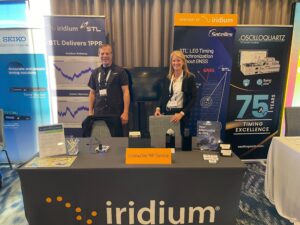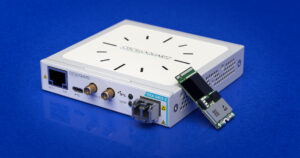On 10/16/2016, NIST will host the IEEE-SA/NIST Timing Challenges in the Smart Grid Workshop in Gaithersburg, Maryland. The Workshop’s goal is to enable stakeholders to delve further into their issues in wide area precision clock synchronization in current and future power systems as well as collaboration in prioritizing key research and standards activities. NIST plans to prepare a draft report summarizing the challenges of wide area clock synchronization and potential solutions.
Background on Timing and Smart Grid
Dynamic distributed measurement and control systems are time sensitive. In distributed control where scheduling of resources, seamlessly orchestrated coordination, and hard deadlines; must be met, measurement data, state estimators and control commands are temporally valid for a specific, sometimes brief, duration. In order to provide the common time reference for correct temporal behavior, all systems must be synchronized to a traceable time and frequency source.
In the North American power grid, where each interconnection stretches over a large spatial expanse, achieving correct timing can be challenging. Timing needs include one microsecond synchronization to a traceable time and frequency reference for data fusion. Issues include, but are not limited to, GPS and communication infrastructure as well as concerns for reliability and resilience; if a reference source becomes unavailable.
Workshop Steering Committee
Workshop Chair: Doug Arnold (IEEE 1588 WG Co-Chair)
Program Committee
- Cuong Nguyen(link sends e-mail) (Cyber-Physical Systems / Smart Grid Program Office, NIST)
- Ravi Subramaniam (IEEE Standards Association)
- Jason Allnut (IEEE Standards Association)
- Rudi Schubert (IEEE Standards Association)
- Ya-Shian Li-Baboud (Precision Timing in Smart Grid, NIST)
Technical Program Committee
- Dhananjay Anand (Precision Timing in Smart Grid, NIST)
- Allen Goldstein (Synchrometrology Lab, NIST)
- Aaron Martin (IEEE 1588™ Power Profile CASC, BPA)
- Bob Noseworthy (IEEE 1588™ Power Profile Interoperability Lab, UNH)



